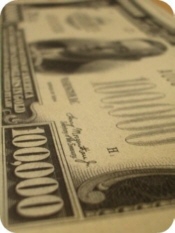A work of authorship is protected by copyright at the moment it is created. If you take a photo or write some software or draft some text, copyright law protects that work the moment it becomes fixed in a tangible medium of expression for more than a transitory duration. You do not need a registration to own a copyright. It exists automatically. But there are certain benefits conferred by registering a copyright.
Copyright registration allows the holder to sue for infringement.
One benefit from having a registration is that the holder of the copyright can sue for infringement. This is a requirement for litigation – a court will not let a copyright infringement case go forward unless the plaintiff shows that it has a registration certificate. And that registration certificate needs to be in hand — it is not enough for the plaintiff to have just applied to register the copyright. It actually needs to have the registration issued.
Better evidence.
A second benefit of having a copyright registration certificate is the evidentiary weight that it carries in court. If the registration is obtained in the five years following the first publication of the work, the judge will look at that registration certificate and give it great importance in ascertaining whether the plaintiff has a valid copyright in the work.
Statutory damages and attorney’s fees.
A third benefit of having a registration is that in certain circumstances the plaintiff can recover its costs and attorneys fees, and be entitled to recover statutory damages. These damages can range anywhere from $750 all the way up to $150,000 per work infringed.
To be entitled to these things the plaintiff must have obtained a timely copyright registration. To be timely, it has to either have been obtained before the infringement began, or if it was obtained after the infringement began, it was obtained within the first three months following the first publication of the work. The key is that timing matters — it is generally advisable to register a work within the first three months following first publication.
Need help with a copyright registration?
Please feel free to give me a call at (630) 362-7237, or send email to ebrown@internetcases.com.
About the author:
 Evan Brown is a technology and intellectual property attorney in Chicago. This content originally appeared on evan.law.
Evan Brown is a technology and intellectual property attorney in Chicago. This content originally appeared on evan.law.


